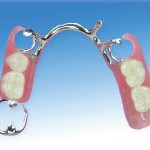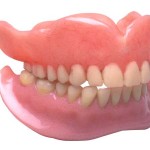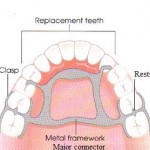We hear from a lot of denture wearers that tell us stories about having a lot of difficulty eating the foods that they want and need to eat, in speaking clearly, and with their appearance. To solve these problems, we use a more involved denture technique called the Branching Technique. The “branching technique,” taught first by Pound and later by Turbyfill and others, allows for extended treatment and management of more complex patient problems.  Less than 1% of dentists in the United States use this technique because of the great amount of training required to learn it, as well as more time spent on working with the patient. Continue reading →
 What is chrome cobalt denture?
What is chrome cobalt denture?

